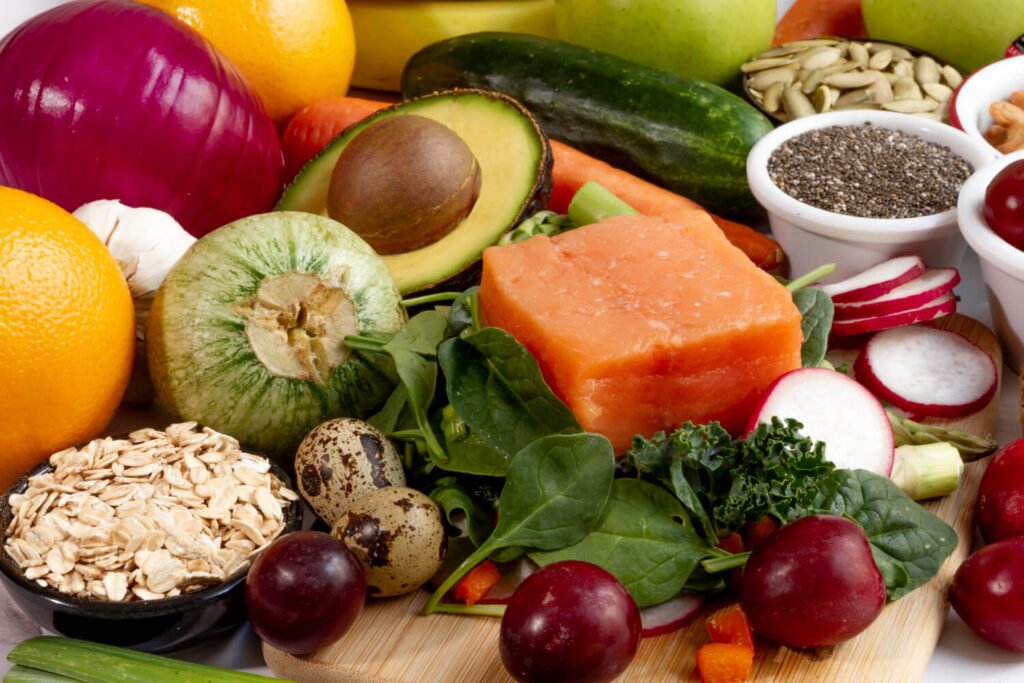Thyroid Troubles? Uncover the Ideal Diet to Support Your Thyroid Health
Thyroid issues are highly prevalent in modern society. Women are affected by this illness far more frequently than men. You must modify your diet and way of life in addition to taking medication. Certain foods are completely avoidable, while others are very helpful for these patients. Let’s investigate the ideal diet for individuals with thyroid conditions.
Thyroid: What is it?
This gland is an endocrine one. By producing hormones, the thyroid gland influences nearly every metabolic function in the body. When the thyroid gland is malfunctioning, it cannot release hormones in an appropriate way, which leads to a variety of issues. The term “hypothyroidism” refers to a situation in which the thyroid produces too little hormone, and “hyperthyroidism” refers to a condition in which the thyroid produces too much hormone. In both situations, the patient has fluctuations in weight, heat intolerance, the onset of depression, and a host of other issues such as frequent fatigue.
Foods for People With Thyroid Issues
Food has a very positive impact on this illness in addition to therapy. You should monitor your food closely if you have a thyroid condition. Now let’s talk about some meals that are good for those with thyroid problems.
foods high in iodine
The body uses iodine extensively in the production of hormones. Hypothyroidism is typically linked to iodine shortage. You need to eat more foods high in iodine if you have a thyroid condition. Eggs, milk, and fish are the primary foods that contain iodine. It’s important to keep in your mind that an excessive amount of iodine might harm the thyroid. Therefore, consuming foods high in iodine is essential.
Zinc
To maintain the activity of thyroid hormones, zinc is crucial. By affecting the release of a hormone known as TSH, it guarantees the thyroid gland releases necessary hormones. Consequently, thyroid function is compromised by zinc deficiency. Good sources of protein include eggs, nuts and seeds, poultry, pig, turkey, and beef. Selenium and zinc work together to maintain the thyroid gland’s activity.
Brazil nuts
Brazil nuts are high in selenium and omega-3 fatty acids. Cholesterol is affected by thyroid issues. Brazil nuts have a reducing effect on cholesterol. Brazil nuts lower insulin levels, which helps thyroid patients regulate their weight, and they also cut the risk of thyroid cancer. Depression is common in individuals with thyroid issues; however, by consuming Brazil nuts daily, brain function is improved and many mental health issues, including depression, may be managed.
Egg
Those who have thyroid disease should consume eggs often. Selenium and iodine are abundant in eggs. Thyroid issues are mostly brought on by a deficiency in iodine and selenium. Eggs support the hormone balance and a healthy thyroid.
Coconut Oil
Fish oil has fatty acids in it. In part, the absence of hormones is made up for by fatty acids. Thus, coconut oil should be utilized in cooking if there is a thyroid issue. For thyroid patients who are frequently weak in calcium, coconut oil is highly helpful. Coconut oil keeps cholesterol levels stable and strengthens bones. If there is an imbalance in hormones, coconut oil might aid with digestive issues. Patients with thyroid issues should use coconut oil to manage their weight since it helps the body get rid of extra belly fat.
Fish
Patients with thyroid disease can benefit from eating fatty fish, such as trout, salmon, mackerel, and sardines, because of their high omega-3 fatty acid content, which lowers inflammation and enhances hormone function. Fish high in selenium, such as halibut and tuna, also support thyroid function. You could include these foods into your diet.
Patients should avoid eating these items.
Foods that cause goiter
foods like soy products (soybeans, tofu, tempeh, and soy milk) and cruciferous vegetables (broccoli, cabbage, cauliflower, Brussels sprouts, kale, and bok choy) Rich in goitrogenous include peanuts, flaxseeds, pine nuts, and millets (sorghum, pearl millet). which, in most cases, thyroid sufferers are not allowed to eat. However, heating these items reduces their goitrogen content. Goitrogenous foods are therefore acceptable, but only in small amounts.
foods that contain caffeine
Foods high in caffeine, such tea and coffee, should be avoided by those with thyroid conditions. While caffeine helps us feel less tired for a short while, it is really bad for our bodies. Digestive issues can be brought on by caffeine.
junk food
Our bodies react negatively to eating too much hot and fatty food. Thyroid condition sufferers’ symptoms are made worse by these meals. In addition, people with thyroid problems may gain weight extremely quickly; junk food and fried foods exacerbate this propensity. Patients with thyroid conditions should limit junk food consumption to maintain a healthy weight.
Sugar
Foods high in carbohydrates or sugar should be avoided. Steer clear of soft drink bottles in particular. You can drink homemade fresh fruit juice (without added sugar) in place of soft drinks.
When thyroid patients encounter this issue, they initially become quite afraid. Yet, this illness is readily manageable if you remain calm and take your medication as prescribed by your physician. You must monitor your nutrition in addition to taking medication. Therefore, you should see a doctor right once if you experience any symptoms.

